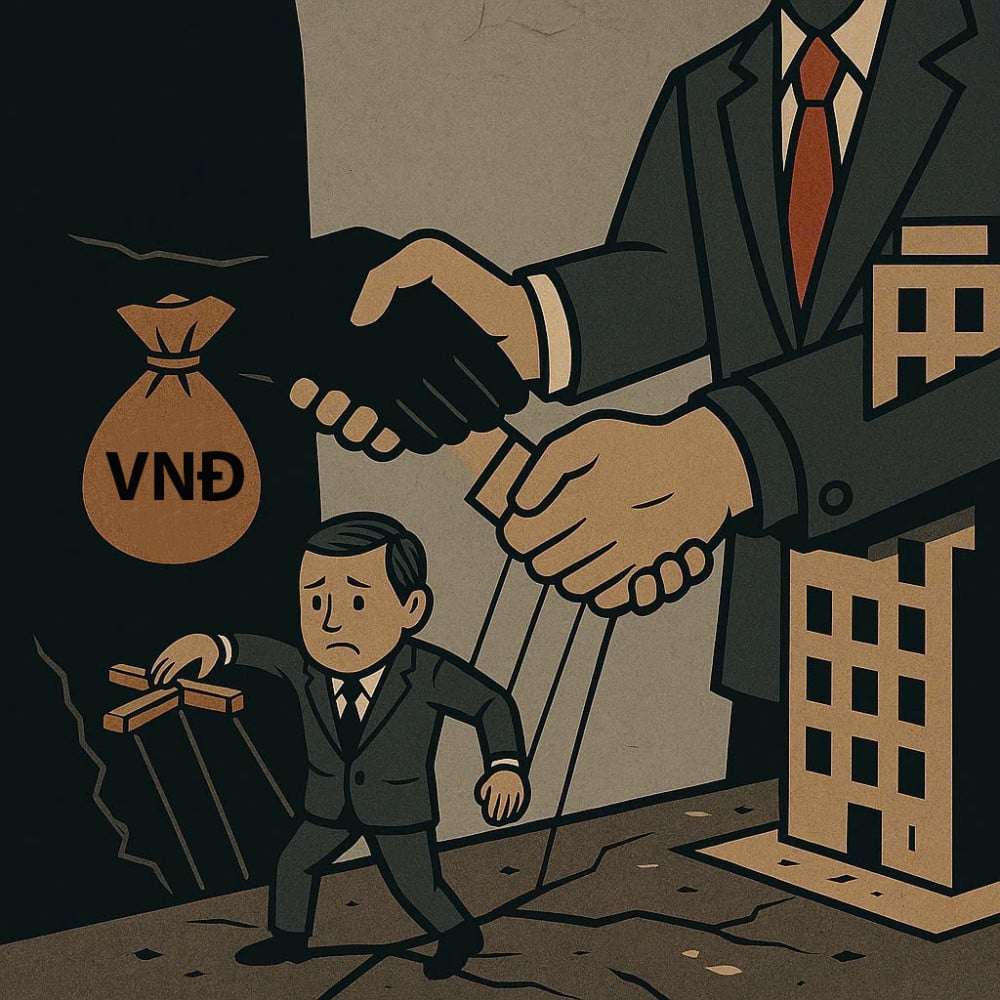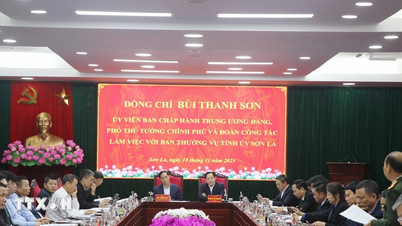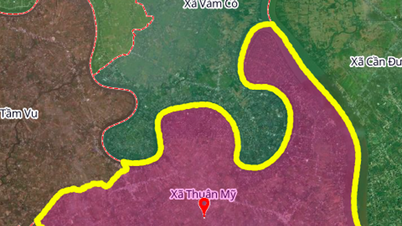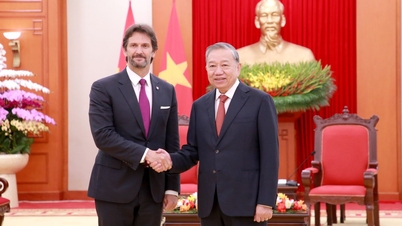Lesson 1: The burning problem of the economy
Hiding under the shadow of power and backed by officials, DNSS are like toxic "boils" that are gnawing at the national economy. This is not only a great threat but also a nightmare that erases fairness and prevents sustainable development. They turn the market into a stage of deception, where talent is despised and tricks and deceptions run rampant. This is a blatant betrayal of the people's trust, a defamation of the law and a trampling on moral values.
These types of enterprises do not create real value but drain social resources, sow discontent and risk long-term instability. If not completely eradicated, they will grow into a rotten "ecosystem" where vested interests manipulate policy, hinder innovation and distort national governance standards.
Backyard businesses can cause imbalances in the market, creating a non-transparent business environment, causing resources to be concentrated in “hidden power groups” instead of being allocated fairly to promote sustainable growth.
The nature of backyard businesses
DNSS is not just an isolated phenomenon but has become widespread due to the manipulation of power in the economic environment. These are enterprises established or operated under the guise of legal entities but in reality operate thanks to the "underground water" of power.
Their prolonged existence distorts competition, suffocates genuine businesses, putting them at a disadvantage when accessing resources, projects or support policies.
This invisible but tangible favoritism creates a “two-tiered playing field” where only those with “backers” are allowed to enter. The government has warned of the seriousness of this situation as a sophisticated form of policy corruption that is difficult to detect and handle.
In a province in the Southeast region, there was a case of a high-ranking official letting a relative run a construction company. This company then continuously won bids for large infrastructure projects thanks to preferential decisions from that official, causing a wave of discontent in the local construction industry.
In another case in the transport sector, a former ministerial-level leader, after retiring, joined the board of directors of a real estate company, helping this company easily access a "huge" project thanks to old relationships.
DNSS can be divided into three main groups. First, enterprises of officials: Directly run by the officials themselves or their relatives, often given priority in project and resource allocation. Second, family-linked enterprises: Established by the wife, husband, children or relatives of officials to exploit the power network. Third, “satellite” enterprises: “Extended arms” of interest groups, specializing in bidding, profit sharing or concealing cash flow.
In essence, these enterprises are "tumors" on the body of the economy, concealing the relationship between power and economic interests, helping those in power to profit without leaving any legal traces. By taking advantage of loopholes in the law such as the Anti-Corruption Law which only deals with individual acts, they operate sophisticatedly, making it difficult to detect and punish.
In some localities, large real estate enterprises are rumored to be secretly "backed" by high-ranking leaders, thereby easily acquiring public land funds or planning projects thanks to inside information.
Serious consequences and risks
The process of forming DNSS often originates from the abuse of power to access large-scale projects, preferential funding or confidential information. Officials use their influence to direct planning, allocate land or give preferential treatment in bidding. Under the guise of separate legal entities, they systematically manipulate the market.
During their operations, these enterprises often conduct internal transactions to “gut” public projects, legitimize cash flow, or secretly cooperate with large interest groups to manipulate prices. From bidding, pricing to approval, every step can be distorted by the “invisible arm”.
In a province in the Central region, a construction company won bids for 7 public projects with a total value of more than 300 billion VND within 2 years despite not having the actual capacity. With the support of local leaders, this company transferred the projects, enjoying a difference of up to 50 billion VND, causing serious loss to the state budget.
The consequences of DNSS are the gradual decay of the business environment. Genuine businesses are pushed to the margins; national resources flow into poor quality projects, over-budgeted or abandoned; the market is manipulated, prices increase artificially, especially real estate and infrastructure.
More dangerously, they undermine the fairness and effectiveness of the law. When power is abused for personal gain, trust in the state apparatus collapses, creating a mentality of “to do business, you must have connections” that pushes the economy out of step. The investment environment declines, foreign investors are hesitant, and opportunities to attract FDI gradually close. For example, surveys from the small and medium-sized enterprise community show that many companies feel oppressed by the “umbrella” of power, leading to unfair competition and loss of hope in economic support policies.
DNSS is a painful manifestation of corruption and group interests, hindering the healthy development of the private economy - an important driving force according to Resolution No. 68-NQ/TW of the Politburo . To eliminate this seed, it is necessary to seriously implement solutions: Make economic activities transparent, eliminate the "ask - give" mechanism and strengthen power supervision. Completing the legal framework to control conflicts of interest, publicize and make assets transparent, and strictly handle violations is a decisive step. Only when a level playing field is built, where the law is respected, will DNSS lose its hiding place, thereby promoting sustainable private economic development, contributing to building an independent and autonomous Vietnamese economy./.
(to be continued)
Tran Quoc Viet
Lesson 2: Smashing group interests, eliminating "backyard businesses"
Source: https://baolongan.vn/doanh-nghiep-san-sau-ganh-nang-vo-hinh-cua-kinh-te-van-nan-nhuc-nhoi-cua-nen-kinh-te-bai-1--a197494.html








![[Photo] General Secretary To Lam receives Slovakian Deputy Prime Minister and Minister of Defense Robert Kalinak](https://vphoto.vietnam.vn/thumb/1200x675/vietnam/resource/IMAGE/2025/11/18/1763467091441_a1-bnd-8261-6981-jpg.webp)



































































































Comment (0)